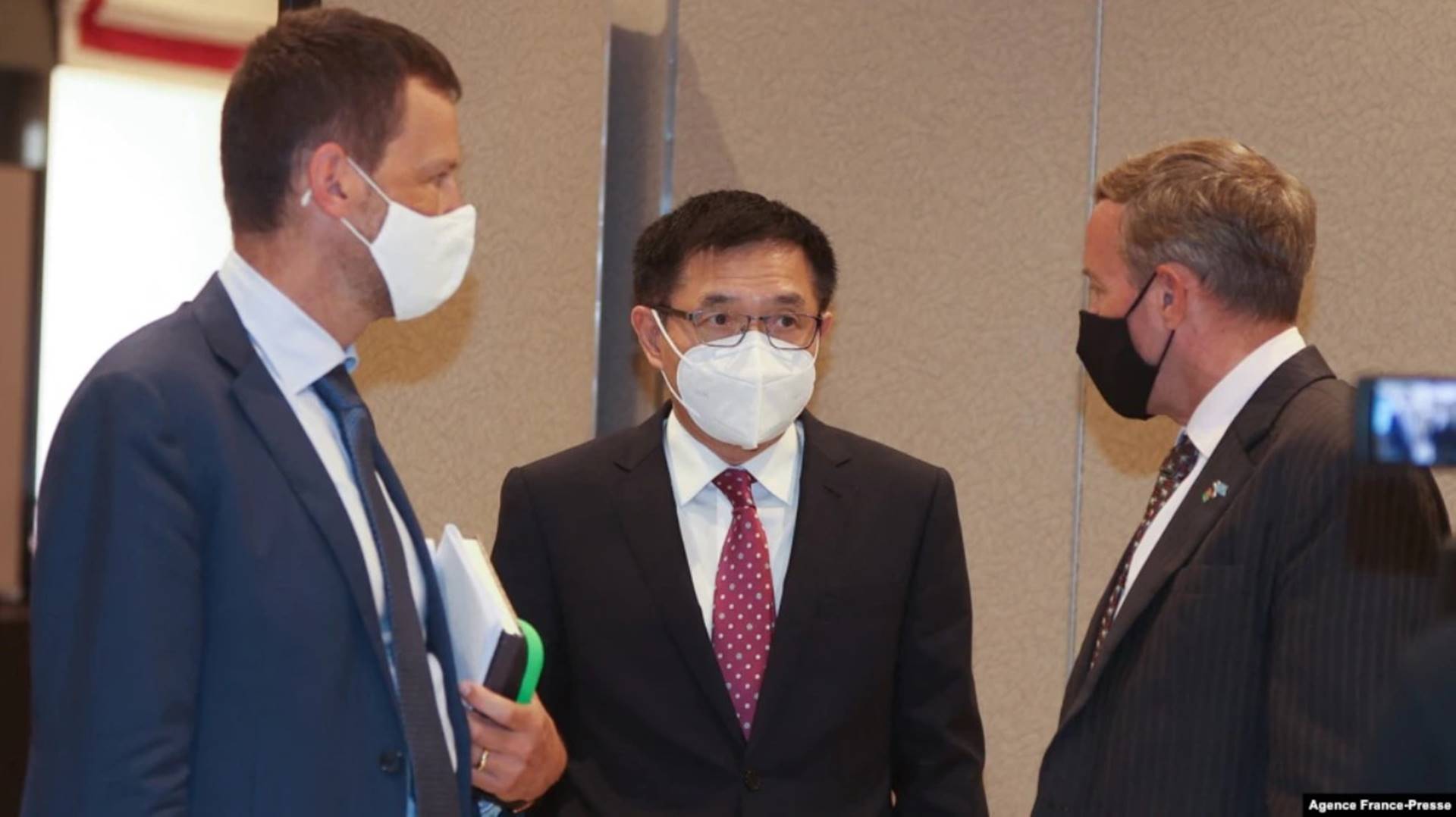U.S. officials and independent analysts reacted skeptically Friday to a Taliban claim that China is ready to invest billions of dollars in Afghanistan

White House press secretary Jen Psaki indicated the United States is more concerned with helping the Afghan people as the nation’s economy collapses than with countering any future spread of Chinese influence in the country.
“Our focus is on working with the vast majority of the international community on delivering humanitarian assistance and getting it to the right people in Afghanistan to make sure they have what they need,” she said in response to a question from VOA.
In an interview in Kabul earlier this week, Taliban spokesperson Zabihullah Mujahid said Afghanistan’s new rulers have pledged to ensure the safety of Chinese workers and assets in return for billions of dollars of Chinese investment.
“They are interested in investment in some sectors in Afghanistan and want to negotiate the details,” Mujahid told VOA.
“One of the projects is Mes Aynak (the site of one of Afghanistan’s largest copper mines and ancient Buddhist ruins), which is one of the important areas where they want to invest billions of dollars, and Afghanistan also needs this,” Mujahid said.
US submarine hits ‘object’ while underwater in the South China Sea
‘Wishful thinking’
China has invested in neighboring countries including Pakistan and Iran and has invited Kabul to join the China-Pakistan Economic Corridor, a flagship project of Beijing’s Belt and Road initiative.
But the idea that China is ready to invest in Afghanistan now is “wishful thinking,” said Husain Haqqani, director for South and Central Asia at the Hudson Institute, a Washington-based think tank focused on U.S. policy. An investment of billions of dollars means an expectation of hundreds of millions of dollars in return annually, and right now the Afghan economy simply does not present that opportunity.
Haqqani notes that the Chinese have so far given the Taliban only $31 million in humanitarian assistance.
“That is certainly not an indication of somebody who’s ready to invest billions,” he said.
Large-scale investment in Afghanistan is also unlikely before the Taliban gain international recognition. No country has recognized the Islamic Emirate — the name proclaimed by the group — as the official government of Afghanistan, including China and Russia, another U.S. rival.
“We are aware that they should be cooperated with, but there is no place for haste,” Russian President Vladimir Putin said to leaders of the former Soviet republics at the Commonwealth of Independent States Summit on Friday.
Unstable and dangerous
While the Taliban have pledged to restore peace, Beijing and other potential investors will need to see more political stability and a safer security environment.
“China will be certainly the first country knocking at the door, but there are no countries knocking at the door right now,” said Erol Yayboke, director of the Project on Fragility and Mobility at the Center for Strategic and International Studies. “They require a certain level of stability.”
Certainly, the security situation remains unstable, and many fear that other militant groups are getting stronger under Taliban rule.
On Friday, suicide bombers attacked a Shiite mosque in Kandahar province in southern Afghanistan, killing dozens of people during crowded Friday prayers. Responsibility was claimed by the Islamic State Khorasan, also known as ISIS-K, the same group that killed at least 45 people and wounded dozens more in last week’s suicide bombing at a Shiite mosque in northern Kunduz province.
Boris Johnson says the UK is in a “period of adjustment” after Brexit and Covid
Moving on
Beyond providing humanitarian assistance and evacuating Americans and Afghan allies, the Biden administration has signaled it is moving on. Officials have repeatedly said that the military component of the U.S. presence in Afghanistan is over.
“The U.S. is no longer in the game in Afghanistan,” said Michael Kugelman, deputy director of the Asia Program and senior associate for South Asia at the Wilson Center.
He said the U.S. is much more focused on great power rivalries elsewhere in the world, particularly in the Asia-Pacific region, including the South China Sea, Taiwan, and Hong Kong. And so far, America’s rivals have not rushed in to fill the vacuum the U.S. left in Afghanistan.
“China and Russia are going to want to be very cautious, at least for the near term, and watch and see what happens in Afghanistan,” Kugelman said.
Beyond security considerations, neither the Chinese Communist Party nor the Kremlin is a natural partner for the Taliban, particularly as the group does not appear willing to become more moderate or inclusive to gain greater international legitimacy.
However, Haqqani warned, the political and security calculus would change should Afghanistan become a haven for international jihadis once again.
“At that point, everybody will recalculate, including the United States,” he predicted.
Napomena o autorskim pravima: Dozvoljeno preuzimanje sadržaja isključivo uz navođenje linka prema stranici našeg portala sa koje je sadržaj preuzet. Stavovi izraženi u ovom tekstu autorovi su i ne odražavaju nužno uredničku politiku The Balkantimes Press.
Copyright Notice: It is allowed to download the content only by providing a link to the page of our portal from which the content was downloaded. The views expressed in this text are those of the authors and do not necessarily reflect the editorial policies of The Balkantimes Press.
